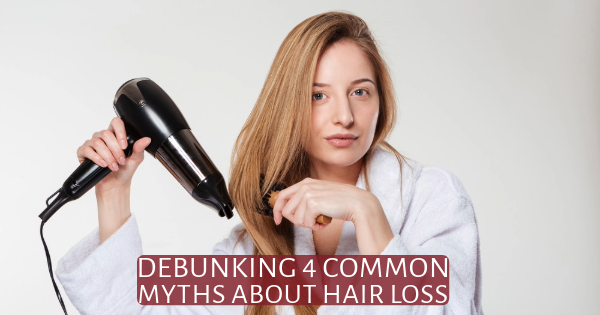Debunking 4 Common Myths About Hair Loss

Losing hair is a concern that affects millions worldwide, transcending age, gender, and ethnicity. Despite its commonality, hair loss is surrounded by myths and misconceptions that can lead to misunderstanding and frustration. This post aims to debunk some widespread myths about hair loss, offering clarity and reassurance to those who experience it.
1. This Only Affects Older Individuals
One prevalent myth is that hair loss only affects older individuals. In truth, one can start losing their hair at a much younger age. According to United Care Clinic, 25% of men and 12% of women start to lose hair by age 30. These statistics reveal that hair loss can start relatively early in life, challenging the notion that it’s strictly an issue for the elderly.
2. Headwear Accelerates Hair Loss
Another common misconception is that wearing hats or caps frequently can cause hair loss. While it might seem logical to assume that covering your head could impact hair health, there’s no scientific evidence to support this claim. Hair loss is primarily related to genetic factors, hormonal changes, or medical conditions, rather than external accessories. Therefore, wearing a hat is generally safe for your hair’s health.
3. Too Much Hair Washing Contributes
A further myth suggests that washing your hair too often or using hair products like gel or hairspray contributes to hair loss. While certain harsh products can lead to hair damage or thinning due to chemical exposure, general washing and styling products are unlikely to cause significant hair loss. It’s essential to maintain a balanced hair care routine and opt for gentle products suited to your hair type. However, it’s also critical to focus more on overall health and genetics as primary factors in determining hair loss.
4. Stress Always Leads to Hair Loss
Many believe that high-stress or anxiety levels always result in permanent hair loss, but this is not entirely accurate. Although prolonged stress can contribute to temporary shedding, hair often regrows once stress subsides or is managed effectively. Lifestyle changes, therapy, and relaxation techniques can help mitigate stress-related hair problems. Moreover, hereditary factors and underlying health conditions typically exert a stronger influence on long-term hair loss than short-term stress.
Embracing a fact-based approach and seeking professional guidance when needed can empower those facing hair loss to make informed decisions about their treatment and care. If you’re currently experiencing hair loss, don’t hesitate to get in touch with LA FUE Hair Clinic today!